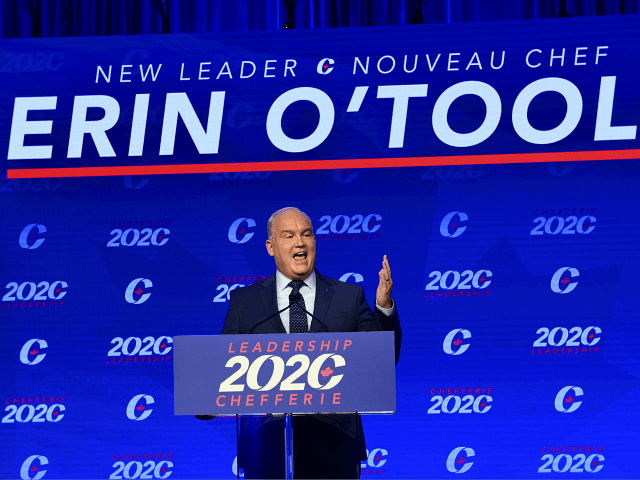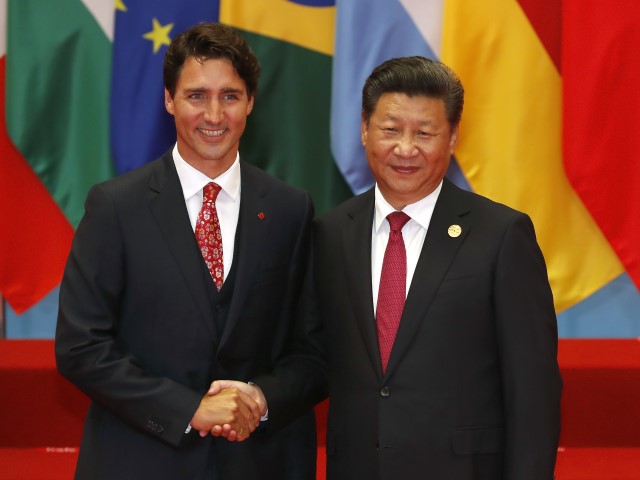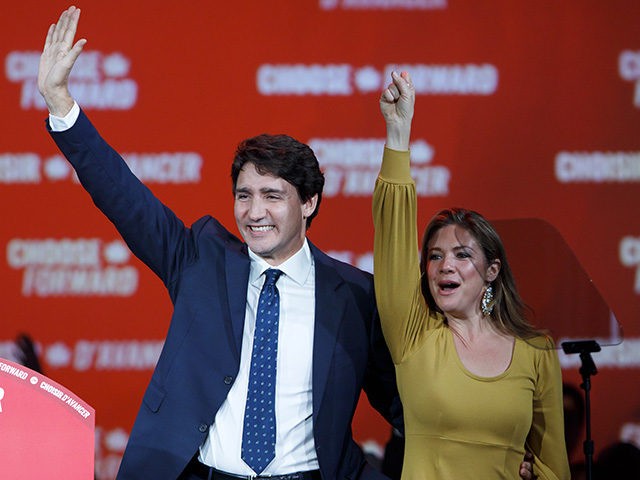A Canadian intelligence commission concluded on Monday that the People’s Republic of China (PRC) “clandestinely and deceptively interfered in both the 2019 and 2021 elections,” both of which Prime Minister Justin Trudeau’s Liberal Party won.
Trudeau established the commission in January under intense pressure to do more about foreign interference in Canadian elections, especially from China.
The most glaring example of such interference was the downfall of Kenny Chiu, a Conservative Member of Parliament explicitly told by the Canadian Security Intelligence Service (CSIS) that his re-election campaign was undermined by foreign interference. Chiu lost his seat in 2021 to a member of Trudeau’s Liberal Party.
On Monday, the commission reviewed a February 2023 CSIS briefing for Trudeau in which the spy agency made it clear that China clandestinely interfered in the previous two elections. The public disclosure of this document was a bombshell that demolished earlier claims by Trudeau officials that the evidence of Chinese interference was not firm enough to merit government action.
Even more embarrassing was the conclusion CSIS reached in the February briefing that China worked to undermine Conservative candidates in 2021 because Beijing felt the party was running on an “anti-China” platform. Among other issues, the Conservatives were vocal about China’s genocide of the Uyghur Muslims and the security threat posed by Huawei 5G networking equipment.
The briefing presented to Trudeau described “online and media activities aimed at discouraging Canadians, particularly of Chinese heritage, from supporting the Conservative Party, leader Erin O’Toole, and particularly Steveston-Richmond East Candidate Kenny Chiu.”

Newly elected Conservative Leader Erin OToole delivers his winning speech following the Conservative party of Canada 2020 Leadership Election in Ottawa on early August 24, 2020. (SEAN KILPATRICK/POOL/AFP via Getty Images
“The timing of these efforts to align with Conservative polling improvements; the similarities in language with articles published by PRC state media; and the partnership agreements between these Canada-based outlets and PRC entities all suggest that these efforts were orchestrated or directed by the PRC,” the bombshell briefing document said.
Former Conservative leader Erin O’Toole testified that Chinese interference may have cost his party up to nine seats, a setback that may have led to his ouster as party leader.
“In the immediate aftermath of the election loss, a petition and public relations campaign against Mr. O’Toole was initiated within 48 hours by a high-profile CPC party member who had served on the national council of the party,” CSIS said.
“A trusted source in a diaspora group and a journalist have advised Mr. O’Toole in confidence that this specific party member had unusual ties to the PRC government. Mr. O’Toole has no information to corroborate these claims, but he trusts the sources,” the briefing added.
O’Toole’s sources included campaign workers in British Columbia fluent in Chinese. Those workers told him that Chinese-language social media groups were spreading disinformation about the Conservative Party and its candidates in 2021. Kenny Chiu was a prime target of these disinformation attacks.
“The level and volume and tone of misinformation towards Mr. Chiu was horrendous. He was fearful for his own well being and that of his family and it was a personal attack of a racially motivated nature, suggesting he was a race traitor,” O’Toole told the intelligence commission.
O’Toole survived that suspiciously-timed attempt to knock him out of party leadership, but he was forced out in February 2022 by a revolt within his caucus. The originator of the petition scrutinized by CSIS, Bert Chen, insisted last week that he was merely a Taiwanese-born Canadian who honestly believed “Mr. O’Toole was not fit to lead our country or our party.”
Investigators found China has various ways of helping candidates it prefers, ranging from suspicious get-out-the-vote efforts to ostracizing “anti-China” politicians from the Chinese-Canadian community so that only China-friendly candidates can effectively organize and fundraise there.

Canadian Prime Minister Justin Trudeau, left, poses with Chinese President Xi Jinping for photographers before a group photo session for the G20 Summit held at the Hangzhou International Expo Center in Hangzhou in eastern China’s Zhejiang province, Sunday, Sept. 4, 2016. (Ng Han Guan/AP)
China’s influence is particularly strong in Toronto, Vancouver, and a few other cities with large Chinese populations. CSIS said the Chinese government supported 11 candidates in the Toronto area during the 2019 elections, most of them members of Trudeau’s party.
The commission on foreign interference looked at a few other sources of suspected overseas influence, including Russia, Iran, Pakistan, and India. The Times of India (TOI) reported on Tuesday that no evidence of Indian interference in Canadian politics was presented to the commission.
The commission’s hearings are still in progress. Trudeau himself is scheduled to testify on Wednesday, an appearance that might become a little more uncomfortable after Tuesday’s revelations.

COMMENTS
Please let us know if you're having issues with commenting.